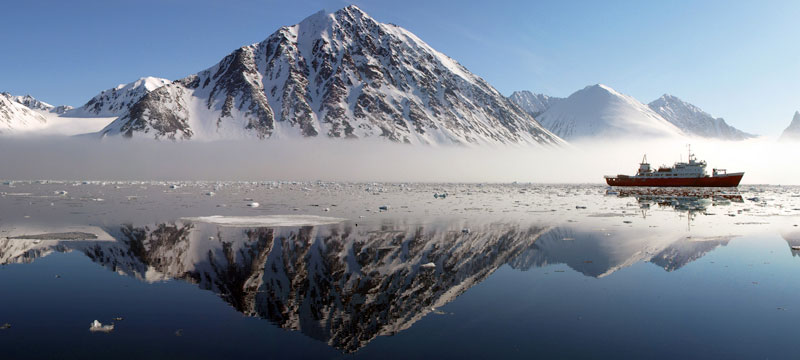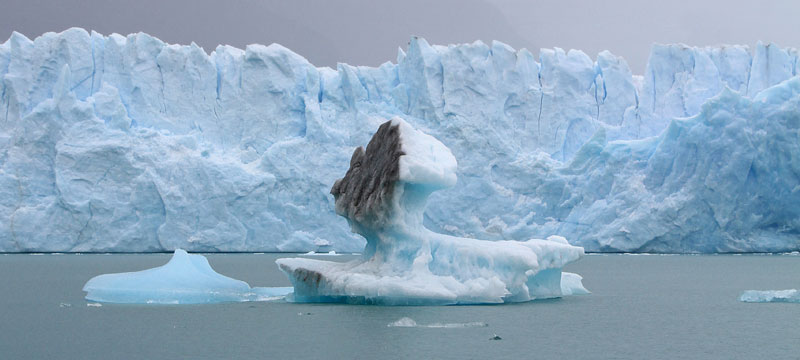The Ongoing Race for Arctic Oil
The spoils of oil: pursuit continues, even as many alternatives emerge and investments are displaced.

credit: thomas hallermann | marine photobank
Oil, and the spoils of oil, are an ongoing siren song of temptation. Even with the accidents, the resultant pollution, the environmental damage, and the impact of foreign investment on local economies, the pursuit continues. Oil remains an enormous percentage of financial return for governments and corporations in Saudi Arabia, Russia, the United Kingdom, Norway, and the United States, where the critical supply remains at the heart of economic viability and growth. For years, oil in the Gulf of Mexico and Alaskan waters has dictated tax policy, local development, and regulatory controls, accidents and spills notwithstanding, even as the global market price declines and alternative energy technologies emerge to displace new investments and future returns.
Paradox abounds: Saudi Arabia announces a major new strategy to switch energy generation from oil to solar. Norway announces major social programs, new technologies, and other investment strategies looking beyond oil dependence. The United States vacillates from administration to administration, from subsidy and support for alternative energy innovation to the sale of new drilling licenses — even in places where the practicality is proven unfeasible and dangerous. Russia continues its own independent reliance on oil and gas as its major economic export even as geo-political leverage of that strategy declines. And then there is the specter of the Chinese.
Norway announces major social programs, new technologies, and other investment strategies looking beyond oil dependence. The United States vacillates from administration to administration, from subsidy and support for sun and wind energy innovation to a return to the old drill-baby drill sale of new licenses even in places where the practicality for drilling as already proven unfeasible and dangerous. Russia continues its own independent reliance on oil and gas as its major economic export even as geo-political leverage of that strategy declines.

credit: jackman chiu for unsplash
And it gets worse, as the United States announces that areas previously inaccessible or off-limits will now be open for drilling, the Arctic and full length of the Atlantic Ocean, south to north, to be auctioned to the highest bidder. It would appear that we have learned nothing from history, and that we are impervious to the further natural and community destruction that this return entails.
As technology advances, some of it is corrupted to serve this retro-spectral vision. Big data, machine learning, cloud computing, financed to private shareholder advantage at public taxpayer expense, is turned backward toward the search for new reservoirs of oil and gas in a complex calculation of who has be biggest reserves, who is going to control a world economy based on a bankrupt paradigm of growth at any cost enable by consumption until all the value is gone. Algorithms suddenly inform decision-making; automation removes the danger of the loss of human life in one of the most dangerous occupations on earth, regardless of the consequence of technical failure. The capacity to respond and clean-up after accident remains no more fully developed that it was before. The impact on local communities becomes greater with the loss of jobs and lesser as funds for social programs remain unavailable allocated elsewhere. And so we enter another circle down, and down again into the fossil fuel whirlpool, one turn further toward loss of control over any aspect of the destructive outcome with no concern for the future. It is at tragic entropic gyre without prescience or conscience.
These events are difficult and energy consuming to resist and counter. In autocracies such as Saudi Arabia and Russia, there is little room to oppose. In the European nations, there is political push-back, even the irony of the collision with progressive public polices that the public has already accepted intellectually and politically. In the United States, the opposition is galvanized to fight in the courts of law and public opinion. What a waste of human energy that is, when all that resource and resourcefulness could be invested in the clean technology that is to come, inevitably as the market rejects the illogic of vested interest and fear of change and adopts process and politics that leaves old world values, structures, and behaviors behind.
- - -
PETER NEILL is founder and director of the W2O and is author of “The Once and Future Ocean: Notes Toward a New Hydraulic Society.” He is also the host of World Ocean Radio upon which this blog is inspired.
- Login to post comments
-


